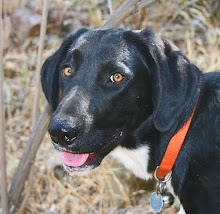 |
| The remains of the narrow gauge railway north of Birgunj, Nepal. |
"What do you want for your birthday, dad?"
"Chas Clifton mentioned a good book the other day", I responded, and so I acquired my copy of Isserman and Weaver's fat volume, Fallen Giants.
It gathered dust on the nightstand for several months, but in need of reading material for a flight over Thanksgiving, I stuffed it into my carry-on and was soon swept away from the here and now.
Fallen Giants is a great chronicle of human endeavor seasoned with political agendas, the clash of cultures, and the madness that motivates some mountaineers.
And since I had visited Nepal many times in the 70s and 80s, the Nepalese place names rang a few bells.
One of them was dusty little Amlekhganj at the foot of the fossil-rich Sivalik Range (or Churias).
We stopped there on December 18, 1982 during a long return trip from West Bengal, India.
Butt sore, famished, and seriously needing a break, we took a stiff-legged stroll looking for food.
The "little toylike train" was already gone; villagers had long since appropriated the sleepers for fire wood, and the rails were sinking into the ground.
But the railway station, absent the hustle and bustle was still there.
I think a Brahmin businessman had taken possession and was storing bags of rice in a locked room.
 |
| The abandoned railway station in Amlekhganj, December 18, 1982 |
Our noses led us across the road through the huts and lean-tos to the inviting pall of wood smoke wafting from Laxman Ghale's food stall.
 |
| The huts and lean-tos |
Straight-backed and cross-legged, the young man resembled a lean Lord Buddha, but I was disabused of this notion when he smartly rapped the noggin of one of his boy helpers.
The boys fetched us little stools, and the cook resumed kneading something in a chipped enamel bowl.
And what were those bile-colored chunks he so lovingly massaged?
"Khasi", smiled Hemanta, "castrated goat." ( He honored the two vowels and pronounced it "gowut".)
"Very tasty", he added. "We'll have a snack of khasi shekwa, my friend -- what you Americans call barbecue."
 |
| Laxman Ghale in his stall preparing hhasi shehwa. |
Laxman earned 150 Rupees a day, paid and fed the two boy helpers, and supported his parents who lived in a shack behind his stand.
And he was a Ghale, a tribal group I'd never heard of, which appealed to my inner anthropologist.
"How about these boys?" I asked my friend, "are they Ghales too?"
More banter followed, and my friend laughed lustily in a Nepali version of the wicked Francophone.
To this the feisty lad who was fanning the coals frowned ominously and fanned ashes toward my friend.
"The little bugger's name is Sambhu Thapa, but he doesn't look Chhetri to me. I told him his mother tricked his father."
Ah yes, I'd heard that one before.
In Hemanta's encyclopedia of amusing Nepaliana were some gems, and questioning a son's paternity -- "Look you little bastard, only I know who your real father is." -- was the maternal response to the last straw of mother-son conflict.
The feisty Sambhu was not amused, though we had little doubt that his mother had numerous occasions to cast doubt on his paternity before.
Hemanta was still waxing eloquent on the virtues of Nepali child-rearing methods when the goat kabobs were served and we were treated to a visit by the local pie dogs.
Two were scruffy skulking runts, the other a robust impeccably groomed black and white dog with an air of confidence.
The handsome dog had been an incurable fighter, explained Laxman Ghale, until the town's folk grew tired of it all. The price had been castration.
A shame, I thought. Such a fine specimen of canine machismo.
I wondered if he had had a chance to sow his wild oats.
Hemanta translated.
"How could he", laughed Laxman Ghale, 'he's castrated!"
The joke was on me.
And how do they castrate a dog in a Nepali village? I asked.
Hemanta didn't have to ask our cook.
"They brick them", was Hemanta's quick reply, and once again my crafty host was obliged to explain the obvious.
"Some villagers hold the dogs legs apart, and . . . " his motions told the rest.
And that, my friends, is what I recorded in my notes about a memorable snack in Amlekhganj.


11 comments:
You are a fantastic storyteller!
It's been ages since I have had goat. Glad you enjoyed the book.
Thanks Aviva, and Chas, the cowboy book is next.
Great story Chris! What did it taste like?
It was absolutely delicioso, spicy and savory with a nice smokey flavor.
Your eloquent story reminds me of the goat on a stick that I ate in Uganda, last year at about this time. Delicious but chewy.
John, goats have much to offer us.
Great story! Re your comment about your host's seeming unBuddhist behavior, the Dalai Lama replied to a question about why a leader of Buddhism had ninja body guards that "Buddhism does not forbid discipline".
Love it, and how true. It's all about discipline.
Your “bricked” dog story reminds me of this one :
Somewhere in the Sahara, a caravan leader was famous for making his camels walk for much longer without drinking than any other. “Simple he said, when asked about his secret, I wait ‘till they’re almost finished drinking at the oasis and then swiftly brick’em without notice”.
Hey chrish.. Filing glad after finding that you'v mentioned our village name in your book.. Thank you so much.. Will you please help me by giving more information about Amlekhgunj that you hav collected last 35 years ago...
Post a Comment